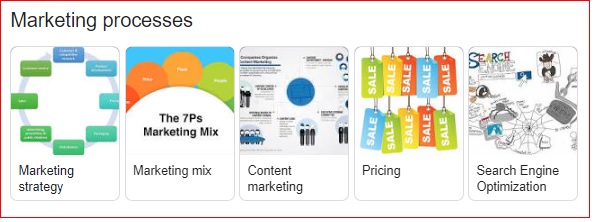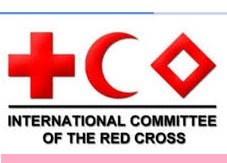How to Develop Business Plan Marketing Strategy – This is the projection of the four Ps which are product, price, place, and promotion which are the marketing mix for your business planning.
These marketing mixes are the relevant tools and methodologies combined by marketers to achieve marketing objectives. Therefore, in every marketing plan development important concepts that need definitions include, Marketing strategy, Target market, Promotion, and Competitor. So, in our marketing strategy in business planning, we present marketing plan templates on how to create a marketing plan.
What is a business plan:
Table of Contents
Furthermore, How to Develop Business Plan Marketing Strategy for a business plan is an important segment. It’s in fact an important component of this formal business document setting out its future objectives and strategies for achieving them, called a business plan. It’s in this segment that the projection of the four Ps of a business which is product, price, place, and promotion which are the marketing mix are fully analyzed. So, as a road map, a business plan encompasses all aspects of business operations and behaviors for commercial activity purposes. Therefore, matters relating to market and marketing are included. This is How to Develop Business Plan Marketing Strategy.
If you contact, Completefmc.com, it will structure bankable business plans for your business startups. As a matter of fact, for every start-up plan we develop, we add startup accelerator strategies, market and marketing strategies. These we build into the business startup ideas generated by us. Therefore with Completefmc.com starting up a business is an experience. Added also are startup funds sources and franchise opportunities. If you are interested, then contact [email protected] or +234
How to Develop Business Plan Marketing Strategy
What is marketing strategy:
These are the action plans you put in place to promote and sell your products or services.
It’s always a long-term plan for achieving a company’s goals by understanding the needs of customers. It aims at creating a distinct and sustainable competitive advantage for the company. That’s is why it encompasses everything from determining who your customers are to deciding what channels you use to reach the targeted customers.
Furthermore, in How to Develop Business Plan Marketing Strategy, the elements are Market research, Marketing and Marketplace analysis, Economics, and Industry analysis. Here are the importance, features, and types of marketing strategy. See How to Develop Business Plan Marketing Strategy
Business Marketing strategies:
Business Marketing strategies involve working around and with the 4Ps of marketing. This is called the marketing mix. These are your business product, price, place, and promotion. In fact, these are the combined tools and methodologies utilized by companies/businesses to achieve their marketing objectives. This is How to Develop Business Plan Marketing Strategy.
Therefore, in working around these 4ps check out how the following impacts on them.
- Know how to target your market.
- Make some cold email marketing.
- Do some online adverts
- Use influencers to build awareness.
- Connect with other local businesses.
- Encourage your audience with some incentives and discounts.
- Make up an email list.
- Invest in search engine optimization (SEO)
- Research the latest trends and events related to your business niche
- Read more about How to Develop Business Plan Marketing Strategy
Now, these are the variables you require to consider for generating all parameters around the 4Ps in marketing strategies.
How to Develop Business Plan Marketing Strategy
The Place of marketing strategy in the business plan:
Marketing strategy, Marketing mix, Content marketing, and Pricing; give rise to successful marketing strategies. It’s an outline of where your business fits into the market and how you’ll price, promote, and sell your product or service. In fact, it’s a source of important information for potential investors who are interested in your business.
As a matter of fact, on How to Develop Business Plan and Marketing Strategy, all the ‘Ps’ in the marketing mix focus on where (place/location), price, product/service, and the type of promotion the company requires to dispose of off its products so that they’re easily available to the target market at the correct price. This is How to Develop Business Plan Marketing Strategy.
That’s why the business plan must show how and what you intend to achieve the workable 4Ps for your business. So, in the end, the financial statements generated will show how good these are for your business. That is why when you watch the Gross margin and Net margin generated you may need to step up your marketing for higher turnover.

Marketing Strategy Challenges:
Why is How to Develop Business Plan Marketing Strategy a challenge to many businesses in Nigeria? We have discovered that developing a business plan and marketing strategy can be a challenge for many businesses in Nigeria due to various factors:
Limited Resources:
Many businesses in Nigeria face resource constraints, including limited financial capital, skilled manpower, and technological infrastructure. These limitations make it difficult for them to allocate resources toward developing a comprehensive business plan and marketing strategy. This is How to Develop Business Plan Marketing Strategy.
Lack of Knowledge and Expertise:
Some businesses in Nigeria may lack the necessary knowledge and expertise in strategic planning and marketing. Developing an effective business plan requires a deep understanding of market dynamics, target audience, competition, and marketing techniques. Without proper knowledge and expertise, businesses may struggle to create a well-rounded strategy.
Market Volatility:
The Nigerian market can be volatile and unpredictable, with factors such as economic instability, changing consumer behavior, and political uncertainties. These fluctuations make it challenging for businesses to develop long-term strategies that can adapt to changing market conditions. This is How to Develop Business Plan Marketing Strategy.
Limited Market Research:
Market research is a crucial component of developing a marketing strategy, as it helps businesses understand their target market, consumer preferences, and competition. However, limited access to reliable market research data in Nigeria can hinder businesses’ ability to gather accurate insights and make informed decisions.
Cultural and Language Diversity:
Nigeria is a diverse country with numerous ethnic groups and languages. This diversity poses a challenge when developing marketing strategies that effectively reach and resonate with a wide range of cultural backgrounds and preferences.
Infrastructure Challenges:
Inadequate infrastructure, such as poor transportation networks, unreliable power supply, and limited internet connectivity, can hinder businesses’ ability to implement their marketing strategies effectively. These challenges can affect distribution channels, communication, and overall operational efficiency. This is How to Develop Business Plan Marketing Strategy.
Regulatory and Legal Framework:
Nigeria has specific regulatory and legal requirements that businesses must adhere to. Navigating through these regulations and ensuring compliance can be complex and time-consuming, diverting attention and resources away from strategic planning and marketing.
We recommend that to overcome these challenges, businesses in Nigeria should seek support from professional consultants like Complete Full Marks Consultants (CFMC) Ltd., Then, attend relevant workshops and training programs, collaborate with industry experts, and leverage available market research resources. Additionally, staying updated with market trends and embracing technology can help businesses develop more effective and adaptable business plans and marketing strategies.
Why is a Marketing Plan Important for Businesses?
A marketing plan is essential for businesses for several reasons. So, understand that the following is very important in setting your business marketing plan.
Setting Clear Objectives:
A marketing plan helps businesses define their marketing goals and objectives. It provides a roadmap for what the company wants to achieve in terms of market share, customer acquisition, brand awareness, sales growth, and other measurable targets. Clear objectives provide direction and focus for the marketing efforts. This is How to Develop Business Plan Marketing Strategy.
Understanding the Target Market:
A marketing plan requires businesses to conduct thorough market research and understand their target audience. It helps identify customer needs, preferences, demographics, and behaviors. This understanding enables businesses to tailor their marketing strategies and messages to effectively reach and engage their target market.
Strategic Decision-Making:
With a marketing plan in place, businesses can make informed and strategic decisions regarding product development, pricing, distribution channels, and promotional activities. It helps allocate resources effectively and prioritize marketing initiatives based on their potential impact and return on investment.
Competitive Advantage:
A well-developed marketing plan allows businesses to differentiate themselves from competitors. By analyzing the competitive landscape, businesses can identify their unique selling propositions and develop marketing strategies that highlight their strengths. This differentiation can help attract customers, build brand loyalty, and gain a competitive edge in the market. This is How to Develop Business Plan Marketing Strategy.
Budgeting and Resource Allocation:
A marketing plan outlines the budget required to implement various marketing activities and campaigns. It helps businesses allocate resources effectively by identifying the most cost-effective marketing channels and tactics. A clear budgeting framework ensures that marketing efforts are financially sustainable and aligned with overall business goals.
Measurement and Evaluation:
A marketing plan establishes key performance indicators (KPIs) and metrics to measure the success of marketing initiatives. It allows businesses to track and evaluate their marketing efforts, identify areas of improvement, and make necessary adjustments to optimize performance. Regular measurement and evaluation enable businesses to learn from their experiences and continuously refine their marketing strategies.
Consistency and Branding:
A marketing plan ensures consistency in messaging and branding across different marketing channels. It provides guidelines for maintaining a cohesive brand image and delivering a unified message to the target market. Consistent branding helps build brand recognition, trust, and customer loyalty.
In summary, a marketing plan is crucial for businesses as it provides a strategic framework, helps understand the target market, supports decision-making, creates a competitive advantage, facilitates budgeting and resource allocation, enables measurement and evaluation, and ensures consistency in branding and messaging. It plays a vital role in driving business growth, increasing market share, and achieving long-term success. This is How to Develop Business Plan Marketing Strategy.
Related topics:
- How to write business plan financial projection
- How to write Business Plan Exit strategy
- A business plan Strategy and Implementation Segment – how to write
- How to write Business Plan Organization Structure
- Apply for CBN Targeted Credit Facilities here
- Cooking gas business plan templates
- Other business Tips
Order Now:
Finally, How to Develop Business Plan Marketing Strategy in the business plan are akin to business growth and development strategies. So, whatever you call it – marketing strategy or sales strategies – they all aim at expanding the business for business growth. Order your business plan marketing strategy analyses from Complete Full Marks Consultants Ltd @ [email protected] or +234 8034347851 today. A comprehensive business plan is available.

Deacon Anekperechi Nworgu, a seasoned economist who transitioned into a chartered accountant, auditor, tax practitioner, and business consultant, brings with him a wealth of industry expertise spanning over 37 years.



